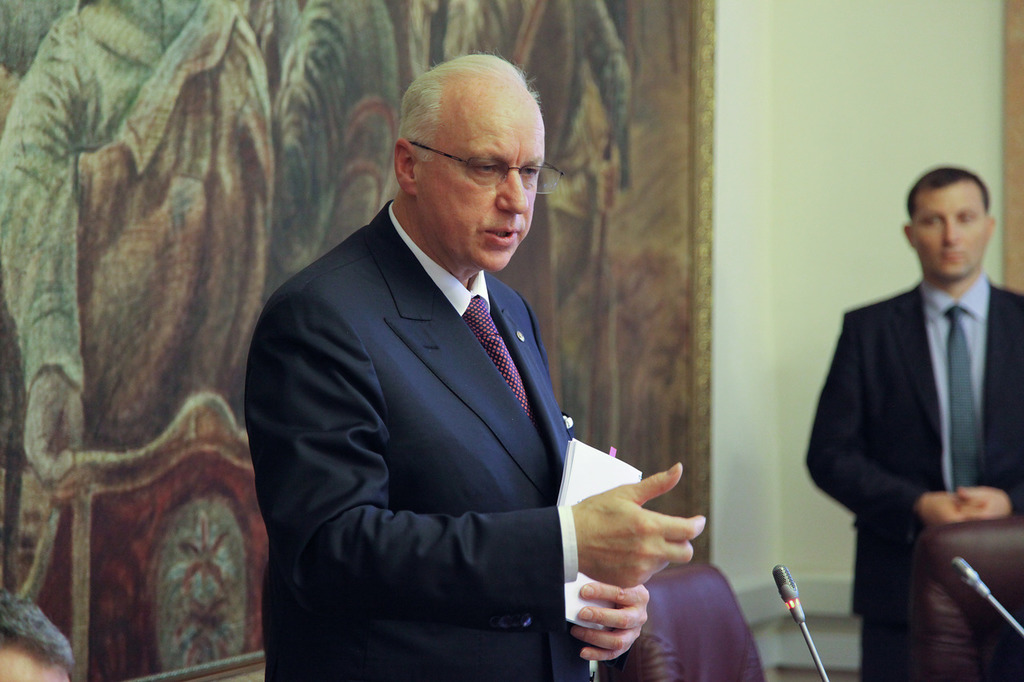
Address of the reception office of the Investigative Committee: Moscow, ul. Pervaya Frunzenskaya, d 3a
Address for writtent applications: 105005, Moscow, Tekhnichesky Pereulok, 2
Address of the reception office of the Investigative Committee: Moscow, ul. Pervaya Frunzenskaya, d 3a
Address for writtent applications: 105005, Moscow, Tekhnichesky Pereulok, 2

Today, Chairman of the Investigative Committee Alexander Bastrkin has delivered to students, masters and postgraduate students of the Kutafin State Law University of Moscow a lecture on the origins and development of Russian investigation and tasks of the Investigative Committee in modern time.
Mr. Bastrykin told the present about the conception of non-departmental preliminary investigation developed by Peter the Great, about investigation offices which were approved on 9 December 1717 and made a whole system that became a separate element of the Russian state. Those investigation offices were prototypes of the modern Investigative Committee: as the latter one, they were subordinate directly to the head of state and specialized in investigating the most dangerous crimes against interests of the state. This way, historical experience to a large extent determined the nature and direction of the modern-time Investigative Committee active since 2011. The Chairman also spoke about Committee’s functions and tasks, its constitutional and legal status and role in the system of state authority.
To let the audience a chance to appreciate the Committee’s performance over the past few years, Mr. Bastrykin alluded to some statistical data: “Over 10 years, investigators of the Investigative Committee have solved 60 thousand crimes committed several years before and probe into which had been suspended. Percentage of major personal crimes solved is about 90%. More than 4 thousand people with special legal status were convicted.”
Answering questions, Mr. Bastrykin said that the moratorium on the death penalty can be lifted only following a referendum, while the capital punishment should be used only in exceptional cases against people guilty of major crimes that posed grave danger to the society. The Chairman is a proponent of humane measures as opposed to deterrent. Speaking about training of staff for the Investigative Committee, Mr. Bastrykin pointed out that the agency needed different specialists and people with profound moral and university education and cooperation with the Kutafin State Law University of Moscow is very promising in this aspect.
The Chairman expressed confidence that each head of Investigative Committee’s divisions should treat a person who comes to them as a person who comes for help, instead of looking at them as an official. As for further reforming of investigation agencies, Mr. Bastrykin shared an opinion that there are all reasons to let the Investigative Committee operate as it does now.
In conclusion, the Chairman of the Investigative Committee wished the students successful studies, thanked chancellor of the University Viktor Blazheyev for the opportunity to speak before students, masters and postgraduate students and awarded him and some teachers with Committee’s awards.
Head of Media Relations S. Petrenko